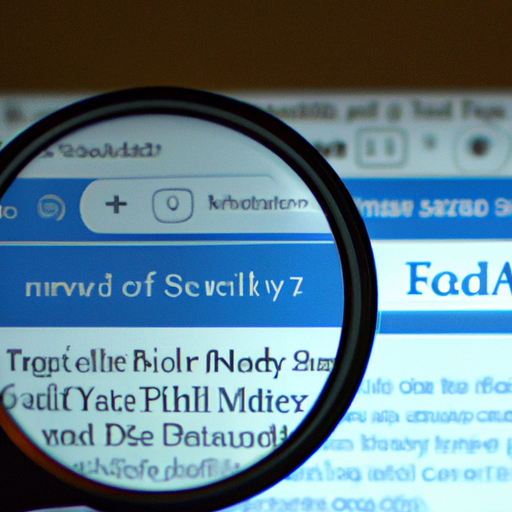In today’s digital age, social media has become a powerful tool for businesses to connect with consumers and promote their products or services. However, with the rise of social media advertising comes an increase in false advertising claims. Misleading information, exaggerated claims, and deceptive practices can all lead to legal ramifications for businesses. As businesses strive to gain a competitive edge in the market, it is crucial for them to understand the potential legal pitfalls associated with social media advertising. In this article, we will explore the legal landscape surrounding social media false advertising claims and provide valuable insights for businesses to navigate this complex area of law.
Understanding Social Media False Advertising Claims

What are Social Media False Advertising Claims?
Social media false advertising claims refer to legal actions taken against individuals or businesses for making deceptive or misleading statements in their social media advertising campaigns. These claims are based on the premise that false or misleading advertising can harm consumers, deceive the public, and create unfair competition among businesses. False advertising claims can arise on various social media platforms, including Instagram, Facebook, Twitter, and YouTube, among others.
Why are Social Media False Advertising Claims Important?
Social media false advertising claims play a crucial role in protecting consumers and maintaining fair competition in the marketplace. False advertising can mislead consumers into purchasing products or services based on inaccurate or exaggerated claims. By holding businesses accountable for their misleading practices on social media, these claims promote transparency, truthfulness, and ethical advertising practices. Additionally, social media false advertising claims can help businesses protect their own interests by ensuring fair competition and preventing misleading marketing tactics from influencing consumer choices.
Common Types of Social Media False Advertising Claims
There are several common types of social media false advertising claims that can arise in the digital landscape:
-
Misrepresenting Product Features: This involves making false or misleading statements about a product’s features, benefits, or performance. For example, claiming that a skincare product can completely eliminate wrinkles when it only provides temporary results.
-
False Pricing Claims: This refers to situations where a business misrepresents the price or value of a product or service. This can include falsely inflating the original price to make a discount appear more significant.
-
Unsubstantiated Claims: If a business makes claims about a product’s capabilities or benefits without sufficient evidence to support those claims, it can be considered false advertising. For instance, promoting a weight loss supplement as a “miracle cure” without scientific backing.
-
Hidden Fees or Terms: Concealing important fees or terms related to a product or service can also be considered false advertising. For example, not clearly disclosing additional shipping charges or conditions for a free trial offer.
Elements of a Social Media False Advertising Claim
To successfully assert a social media false advertising claim, several key elements must be established:
False Statement or Representation
The plaintiff must demonstrate that the defendant made a false statement or representation in their social media advertising. This can include explicit false claims, misleading statements, or omissions of material information important for consumers’ purchasing decisions.
Misleading or Deceptive Practices
The plaintiff must show that the defendant’s advertising practices were deceptive or misleading. This involves evaluating the overall context, impression, and effect of the advertising on a reasonable consumer.
Materiality of the Claim
The false statement or representation must be material to consumers’ decisions. In other words, it must be likely to influence a consumer’s purchasing choices or affect their understanding of a product’s qualities.
Actual Harm Suffered by the Plaintiff
The plaintiff must demonstrate that they have suffered actual harm as a result of the false advertising. This can include financial losses, damage to reputation, or other tangible or intangible damages.

Challenging Social Media False Advertising Claims
Businesses facing social media false advertising claims have several potential defenses to refute the allegations:
Truthful Statements or Disclosures
One defense is to argue that the statements made in the advertising were true or that any potentially misleading statements were adequately clarified or disclosed.
Lack of Deception or Misleading Conduct
Businesses can challenge the assertion that their advertising practices were deceptive or misleading by providing evidence that consumers were not likely to be deceived or misled by the claims made.
Absence of Materiality for the Claim
If a false statement or representation is found to be immaterial, meaning it did not influence consumers’ purchasing decisions, it may not be considered false advertising.
No Harm Suffered or Causation Demonstrated
Challenging the plaintiff’s ability to prove actual harm suffered as a result of the false advertising can be a defense. This may involve demonstrating that any harm claimed was not directly caused by the advertising.
Proving Damages in Social Media False Advertising Claims
In social media false advertising claims, damages can be proven through various means:
Actual Damages Incurred
The plaintiff may seek compensation for actual damages suffered, including financial losses incurred as a result of purchasing a product or service based on false advertising claims.
Statutory Damages Provision
Some jurisdictions have statutory provisions that allow for the recovery of set amounts of damages without the need to prove actual harm suffered. These damages are often awarded to deter future false advertising practices.
Injunctive Relief and Corrective Advertising
In addition to financial compensation, the court may grant injunctive relief, ordering the defendant to cease the false advertising practices. Corrective advertising, which requires the defendant to provide accurate information to consumers, may also be mandated to rectify the harm caused.
Defenses Against Social Media False Advertising Claims
Lack of Jurisdiction
One defense against social media false advertising claims is challenging the court’s jurisdiction over the matter. If the court lacks proper jurisdiction, the case may be dismissed or moved to another jurisdiction.
First Amendment Protection
In certain situations, businesses may argue that their advertising falls under the protection of the First Amendment and qualifies as protected speech. However, commercial speech is subject to certain restrictions to prevent false or misleading claims.
Fair Use Doctrine
The fair use doctrine allows the limited use of copyrighted materials without permission from the copyright owner. Businesses can invoke this defense if the false advertising claim involves the use of copyrighted material.
Puffery Defense
The puffery defense is based on the argument that the advertising claims were so exaggerated or extravagant that no reasonable consumer would take them literally. However, there is a fine line between permissible puffery and false advertising.
Unclean Hands Defense
The unclean hands defense asserts that the plaintiff engaged in improper conduct, which undermines their right to seek remedies. If successful, this defense can prevent the plaintiff from recovering damages.
Legal Remedies for Social Media False Advertising Claims
When faced with social media false advertising claims, businesses have various legal remedies available to them:
Cease and Desist Letters
Prior to initiating legal proceedings, businesses can send cease and desist letters to the alleged wrongdoers, demanding that they stop making the false advertising claims. These letters often serve as a warning and an opportunity to resolve the matter amicably without resorting to litigation.
Settlement Negotiations
Businesses may engage in settlement negotiations with the plaintiff, seeking to reach a mutually agreeable resolution. Settlements can help avoid the costs and uncertainties associated with litigation.
Litigation and Court Proceedings
If a resolution cannot be reached through negotiation or settlement, businesses may need to proceed with litigation. This involves filing a lawsuit and presenting evidence and legal arguments in court. The outcome will be determined by the judge or jury, depending on the legal procedures and the jurisdiction.

Preventing Social Media False Advertising Claims
To minimize the risk of social media false advertising claims, businesses should implement proactive measures:
Regular Review and Compliance of Social Media Advertising
Regularly reviewing and revising social media advertising materials ensures compliance with applicable laws and regulations. This includes verifying the accuracy of claims, avoiding false promises, and adhering to disclosure requirements.
Transparent Disclosures
Businesses should provide clear and conspicuous disclosures to ensure consumers have all the relevant information needed to make informed decisions. This includes disclosing any material connections, potential risks, limitations, or conditions associated with a product or service.
Clear and Accurate Representations
Avoiding vague or ambiguous statements and using clear language in social media advertising helps avoid potential claims of false advertising. Ensuring that advertising claims are accurate, substantiated, and not misleading is crucial.
Proactive Monitoring and Consumer Feedback Management
Businesses should proactively monitor their social media platforms for any false advertising claims or misleading statements made by influencers or users. Promptly addressing any misleading content and actively managing consumer feedback can help mitigate the risk of legal action.
Case Study: Recent Social Media False Advertising Claims
Case 1: XYZ Corp’s Misleading Claims on Instagram
In a recent case, XYZ Corp was accused of making false claims about their weight loss supplement on Instagram. The plaintiff alleged that the before-and-after photos posted by XYZ Corp were misleading, as they were manipulated and did not reflect typical results. The case resulted in a settlement where XYZ Corp agreed to provide accurate disclosures and pay compensatory damages.
Case 2: ABC Company’s False Endorsements on Facebook
ABC Company faced a social media false advertising claim when it was discovered that they had fabricated positive reviews from customers on their Facebook page. The plaintiff argued that the false endorsements misled consumers into believing that ABC Company’s products were of higher quality than they actually were. The case went to trial, and the jury awarded substantial damages to the plaintiff.
FAQs: Social Media False Advertising Claims
1. What is considered false advertising on social media?
False advertising on social media includes any deceptive or misleading statements, representations, or practices made by individuals or businesses through social media platforms. This can encompass false product claims, misleading pricing information, unsubstantiated assertions, or the omission of material information.
2. Can I be held liable for false statements made by influencers or users on my social media platforms?
As a business, you can be held liable for false statements made by influencers or users on your social media platforms if you have control over the content or if you endorse or encourage the false statements. Implementing proper monitoring and content moderation practices, along with clear guidelines for influencers, can help reduce the risk of liability.
3. How much compensation can I receive for a successful social media false advertising claim?
The amount of compensation that can be awarded in a successful social media false advertising claim varies depending on factors such as the nature and extent of the harm suffered, the jurisdiction, and applicable laws. Compensation can cover actual damages, statutory damages, and legal fees.
4. Can social media influencers be held responsible for false advertising?
Yes, social media influencers can be held responsible for false advertising if they make false or misleading claims about products or services they endorse. Influencers should ensure that their statements are truthful, substantiated, and in compliance with advertising regulations.
5. How long do I have to file a social media false advertising claim?
The time limits for filing a social media false advertising claim, known as statutes of limitations, vary depending on the jurisdiction and the specific laws involved. It is important to consult with an attorney promptly to determine the applicable deadline for filing a claim in your particular case.
